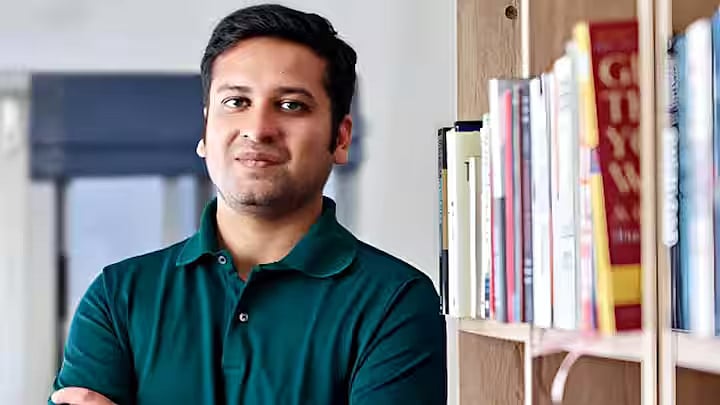In the last few months, three separate incidents in institutions of higher education in Mumbai, all associated with disciplining their students, raise troubling questions about how authorities in these institutions view their students.
Let me first summarise these incidents. In June 2024, IIT Bombay imposed a financial fine, ranging from Rs 40,000 to Rs 1.2 lakh each, on eight of its undergraduate students, along with facing suspension from the hostel, for taking part in a play during a cultural event at the IIT in March thus year, that ‘offended’ the religious (Hindu) sentiments of a few of its other students. The Director of the institute justified the penalty on the ground that none of the students has been rusticated and their academic careers have not been disrupted. The Director further added that the decision to impose the penalty was taken by the discipline committee of the institute following a due process!
In the second incident, the Bombay High Court granted relief to a research student of Tata Institute of Social Sciences, Mumbai who was rusticated in December 2023 by the institute for her social media posts allegedly targeting senior officials of the institute. According to the institute authorities, the accused student and her husband were responsible for the offending post. Different committees of the institute repeatedly refused to reconsider her rustication despite the advise of the high court to ‘consider finding a solution to put an end to the issue’. They maintained that the matter was ‘very grave and serious’. In July, the Bombay high court again directed the institute to decide the student’s appeal ‘dispassionately and as per law’ within six months’.
The third incident involves a local degree college, N G Acharya and D K Marathe college of arts, science and commerce. On May 1, the college issued a circular informing the students that ‘they could no longer wear burqas, niqabs, hijabs or any other religious identifiers such as badges, caps or stoles’ on campus. On June 27, the college further informed its students that they could no longer ‘wear jeans, T-shirts, revealing dresses and jerseys’. The students could only enter the campus in ‘formal and decent dress…a half-shirt or full-shirt and trousers….Indian or western outfit (for girls)’.
As expected, students protests against these notices. On the issue of hijab, a few students filed a petition in the Bombay High Court but lost the case. When the students continued to protest, the college administration called it ‘contempt of the court order’. The college also claimed that it suspected outsiders were instigating students on the issue of wearing hijab. On wearing jeans and T-shirt, the college offered students a ‘relaxation’ period of a few days but added that it was ‘simply preparing’ its students for the corporate world.
While I have picked up these three incidents, depressingly, these are not isolated cases. Increasingly, college and other institutions of higher education seem to be in a disciplinary mode across the country: disciplining students and faculty on different pretexts but with a common agenda: all must fall in line with whatever the administration and officials decide is in the ‘larger interests’ of the institution. Sadly, these interests and concerns regarding the institution do not include students’ and faculty’s ideas of what the institute should be and what it should and should not do. Instead, they are simply expected to be the passive recipients of administration’s ways of governing. It is as if, instead of being the core of the institution, they are outsiders, admitted to it at the mercy of the administration!
The larger irony is that the newly adopted and widely ‘celebrated’, New Education Policy 2020, repeatedly talks about how critical thinking should be an integral part of being a college student and how students must develop a well-rounded personality through participation in artistic and creative activities.
But here is the paradox: if a play in a cultural festival in a premier institution is to be hostage to the ‘religious feelings’ of a few of its other students in an audience and further, if the institute then brazenly penalises only those students who participated in the ‘offending’ play without even trying to reason it out with the ‘offended’ students about the freedom to creative expression of others and the possibility of multiple interpretations of artistic activities — an elementary and basic task of education at all levels, but specifically, in an institution of higher education where students are adults and citizens in the making — how does it foster critical thinking?
Similarly, if a student’s social media posts that are critical of how the institution functions are deemed a ‘very grave matter’ by authorities and the student is,then, disproportionately punished by the institute and courts have to repeatedly intervene to protect the student and if again, students right to dress as they wish is arbitrarily curtailed by authorities (and then sustained by a High Court in this case), then, we have a situation where students are being infantilised by authorities and where they are forever suspect and under watch.
In such a scenario, the joy of exploring, learning and experimenting with new ideas and new ways of thinking and living — the basic promise of higher education — are quickly and damagingly replaced by fear and self-censorship and students in institutions of higher education learn not to offend authorities at any cost. We, collectively, as a society need to seriously introspect if this is what we want from our institutions and from our students.
Vrijendra taught in a Mumbai college for more than 30 years and has been associated with democratic rights groups in the city













